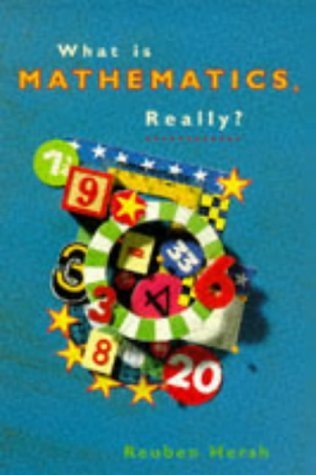Ideal Formulas
In America, math is religion. Its creed might be mostly separate from human affairs, but its method of teaching and acquisition is that of a dogma handed from a higher being. Indeed, mathematics got its Western start with the Pythagoreans, a Greek cult worshipping formulas that carry their name today. Math then became enmeshed in the western philosophical/religious mainstream via Plato and Christianity, fitting nicely into concepts that exist in a world apart from our reality entirely (like heaven!). In a typical classroom, math is taught like the commandments. Why does it work? Nobody has the answer and few ask the question. This is platonic idealism at its finest, and I wonder how many of maths practitioners understand the beliefs they transmit.
A competing school of thought claims that math has no meaning, as it is simply string manipulation following internally consistent rules. Essentially every operation of math is a rearrangement of the same truth that could be immediately apparent to higher minds.
Hersch disagrees with both the platonic and formalist interpretations of math. He offers that math is merely a human construct built into our intersubjective reality. This puts math on par with language, government, currency or even religion itself. Specifically mathematics is a language that can be used to describe abstract phenomena with a precision that other languages cannot match, and exhibits the pared down knowledge base of all practitioners that have previously 'spoken' in the language.
At first glance, this is not only compelling, but mindblowing to think about the Platonic assumptions behind our society's blind recitation of mathmatical formulas. Putting math into the same category as language helps understand how we learn it, as well as the natural human capacity to understand and expand the field. Furthermore, it allows us to sidestep the woo-woo beliefs necessitated by attempting to formalize tacit Platonism. It also avoids the trap of formalism, insisting that mathmatics has *no* meaning outside of itself.
After all, if we start using wavelengths, cosine, sine, and milimetters to describe the color violet, is it truly different in nature to simply using the word violet? We don't have physics figured out, and keep discovering that every paridigm seemingly able to explain the world is indeed only a mental model i.e. a metapheor i.e. not reality i.e. it the math was a coarse description of something completely different. Math is only our most precise metaphor, using symbols to describe concepts that while imaginary (like i), serve as crutches for us to make out what we can of the world.
Yet reading through, a doubt persisted in my mind: why is there such a special relationship between math and physics? Is this fundamentally the same as any other human construct? Hersh never dives in, to my regret.
This book is a math-lite investigation of the philosophy of math, and while I have a broader view now, I'm still missing the complete picture. I'll want to read some more mainstream philosophy of math to come to a conclusion I firmly believe.
90th book of 2022

